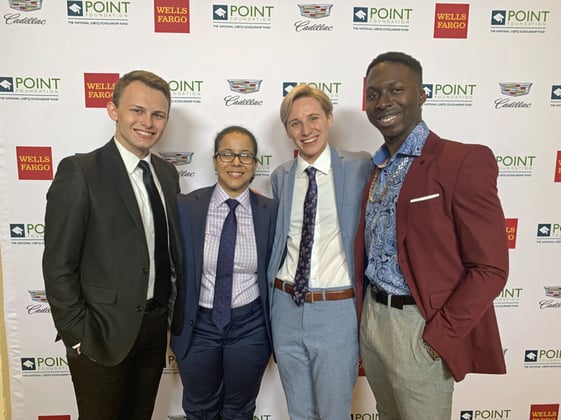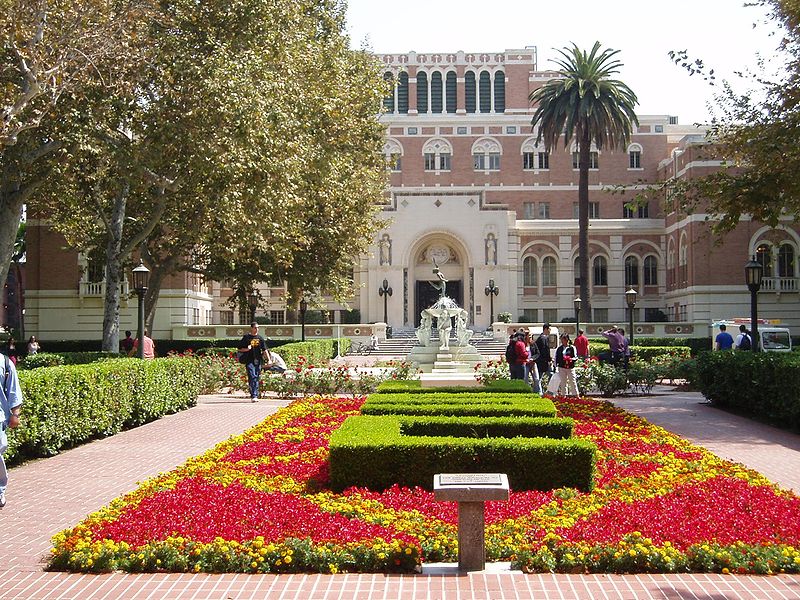The University of Southern California, my very-soon-to-be alma matter, is surrounded by four walls. That line could be taken as a cute expression to represent the usual college-student campus isolation, but I am being quite literal when I say the university park campus is surrounded by four, heavily-guarded fences. Though they have been here for my entire time as a student, they are still fairly new. Apparently, one incident a few years back was drastic enough to change the way campus administration decided to protect its students. The walls are supposed to make us safer between the hours of 9pm and 6am, and while I can’t speak to how much of that safety is worth the ire of the surrounding community, I can say they only give a physical manifestation of the invisible walls surrounding not just USC, but most universities in America.
You see, USC is a safe space, and with that designation comes the expectation that students are safe to vocalize their complaints with each other and the administration. This has been done through a myriad of activities over my years here, including impromptu rallies at the Tommy Trojan statue, presidential office sit-ins, and flyering campus. These are all wonderful acts of solidarity and challenge that have, at least in some ways, resulted in change around the school. Students have been able to get all-gender restrooms around campus and get campus police to undergo racial bias classes. We are empowered here to speak our minds, gather respectfully, and demand change. What’s important is that we are free to do all of these without facing negative consequences from the “powers that be” of USC. I am happy to say my school provides that. However, as graduation comes knocking on my door, I’m remembering something.
The real world is not a safe space.

At USC, I can respectfully state my grievances about a professor or class structure. I may not always be heard or that change may not occur, but I would still be welcome to attend and engage in classes. Unfortunately, the same cannot be said for the real world.
Many companies have policies about “escalation” that they claim will protect employees that decide to speak against injustices. However, it is been proven time and time again that those policies do not end up protecting the people that rely on them most. Sometimes, even if the protections do as their supposed to, the social stigma of pushing for change may force the person out of their job. If you’re the only person in the building who wants to see your same-sex partner get full spousal benefits, it’s hard to keep fighting alone.
I am worried that fighting for equality will be harder when I also need to make sure I keep the job to survive. Or maybe the issue will not be with my workplace, but it will be with a transphobic landlord instead. We may be promised access to equal rights lawyers and all of these things, but realistically, resources are scarce and not everyone will be protected. That is made clear in the news every day. So now I am at a dilemma. Should I play it safe? Should I make sure my own security is always maintained? Should I – as Tiffany “New York” Pollard famously said on VH1’s ‘Flavor of Love’ – “just sit there and eat my food”? It is hard, and there are no right answers. Perhaps that is what scares me most. I don’t know.
Will I be strong enough to keep fighting when I no longer have a university to protect me?

Point Scholars Miah Miller, Melanie Camejo Coffigny, Mel Ferrara, and Jules Turner at Point Honors NY 2019
Well I suppose it is time to find out. Though honestly, I believe I’ll be okay. As I transition into a member of USC’s alumni family, I’ll also join Point’s. It’s fully of long-time supporters, friends, and people I look up to everyday. I appreciate having access to a family of so many informed, inspiring people who I know will have my back as I transition into the “real world.” So, I ask myself again: will I be strong enough to keep fighting when I no longer have a university to protect me?
Yes, yes I will.
 This post was written by HSBC Point Scholar Jules Turner.
This post was written by HSBC Point Scholar Jules Turner.
Jules studied Biomedical Engineering and Spanish at the University of Southern California. Jules is passionate about using their experiences to help others have a more peaceful process of self-acceptance. Read more about Jules here.

